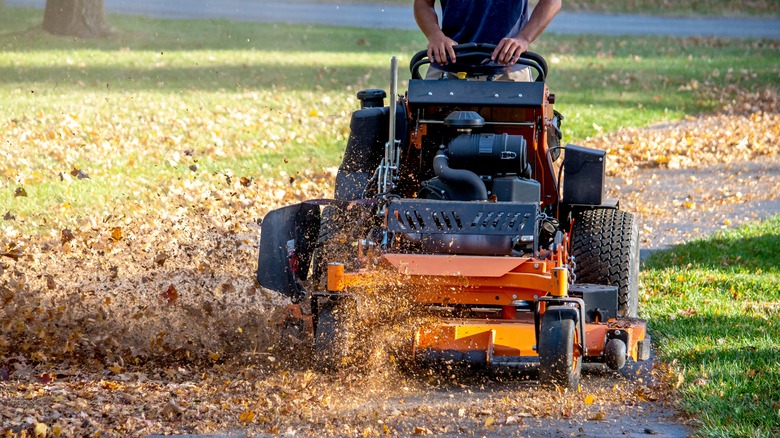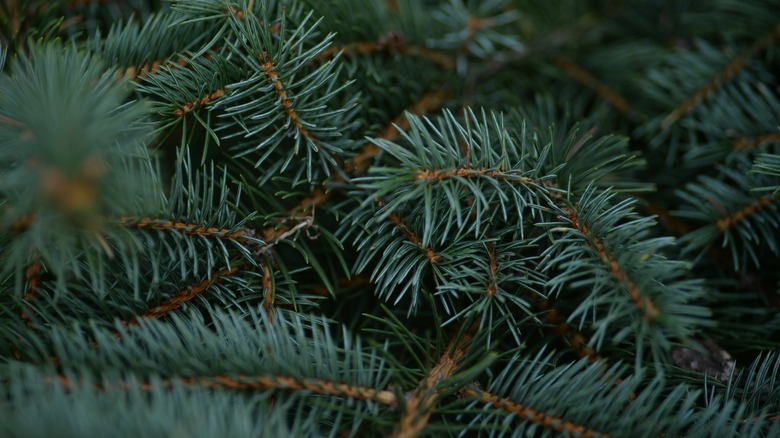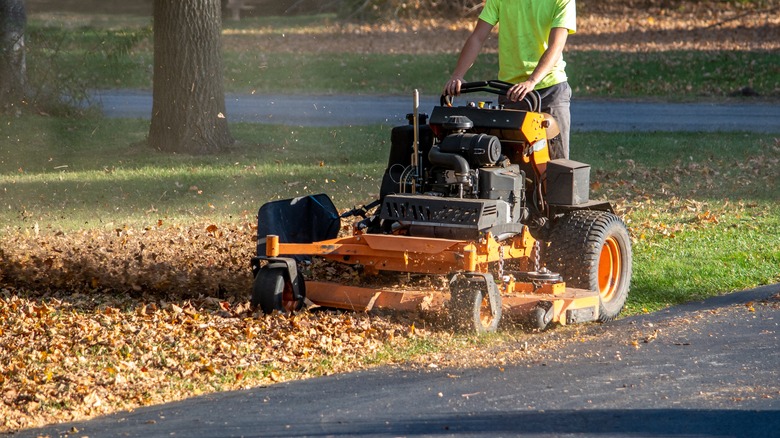Why You Should Reconsider Mulching Fallen Leaves
As autumn rolls in, fallen leaves carpet our yards. Many homeowners and gardeners view this as the perfect opportunity to mulch them into the soil, transforming fall leaves into fuel for your garden. Mulching leaves promotes a natural way to deal with the seasonal debris. It can save time, effort, and the hassle of bagging leaves, seemingly offering a win-win for both you and your lawn. However, while mulching can be convenient, it may not be as effective as it's made out to be. Before you start shredding those leaves, it's worth considering the drawbacks of mulching and how it might impact your lawn.
Mulching fallen leaves can damage your lawn if not done properly. The key to successful mulching is ensuring the leaves are shredded into fine particles that can break down easily. However, if the leaves accumulate in thick layers, or are only partially shredded, they can create a dense mat over your grass. This layer can block sunlight, prevent water and air from penetrating the soil, and trap moisture. The result is a lawn that struggles to breathe, leading to yellowing grass, patchy growth, or even complete suffocation.
A thick layer of wet leaves also creates an ideal environment for fungal growth. The leaves may also attract unwanted pests, offering a cozy shelter for animals like beetles, ants, and even rodents allowing them to burrow into the leaf cover. These pests may gnaw at your grass, shrubs, or even the roots of your trees, causing long-term damage. In short, anything other than a thin layer of leaves could lead to more harm than good.
Not all leaves are created equal
Another drawback of mulching is that not all leaves are suitable for this process. Pine needles, for example, don't break down well when shredded because of their tough texture and shape. Even after being shredded, they don't decompose as easily as broad leaves, which can potentially smother your grass.
Some broad leaves, like maple and sycamore, can also present challenges. While they may break down more readily than pine needles, their larger surface area and thicker structure can still slow the decomposition process. In some cases, they can take over a year to fully decompose, meaning they can sit and accumulate on your grass for a long time.
If your yard contains a mix of pine needles and broad leaves, mulching your leaf debris may not be an effective solution. You'll need to rake, sort and bag the pine needles — and potentially even certain types of broad leaves — separately. This means adding more work to your seasonal cleanup despite your efforts to mulch. Ultimately, managing different types of leaf debris can complicate the mulching process and reduce its overall efficiency.
The right equipment and effort matter
Mulching fallen leaves isn't as simple as running a lawnmower over your yard. To mulch effectively, you'll need a mower equipped with special mulching blades. These are designed to shred leaves into small particles. Standard mowers can chop leaves, but without the proper blades, they won't create the fine mulch necessary for quick decomposition.
If you don't already own a mulching mower, you'll either need to invest in one or purchase a conversion kit to retrofit your existing mower. Mulching mowers range between a couple to a few hundred dollars, depending on the brand and features. Conversion kits are significantly cheaper, but you'll need to ensure they are compatible with your existing mower. A kit typically includes a specialized blade and a plug that blocks the mower's chute to the grass collection bag. This forces the leaves to circulate under the mower and be shredded repeatedly.
Even with the right equipment, you'll need to stay on top of the falling leaves. Infrequent maintenance is a common mulch mistake that can ruin your garden. This means mulching multiple times throughout the fall to prevent excessive buildup or risk leaving dead leaves on your lawn. If you wait too long, the leaves will likely pile up and make the mulching process ineffective, leading to the same problems of suffocating grass and excessive moisture retention. The more regularly you mulch, the better the results, but this requires more time and effort on your part, and may make traditional raking and bagging a more appealing option for some.


